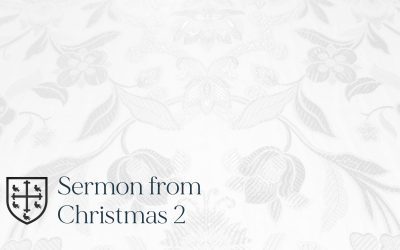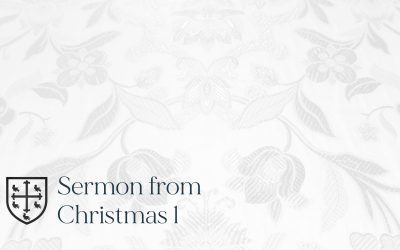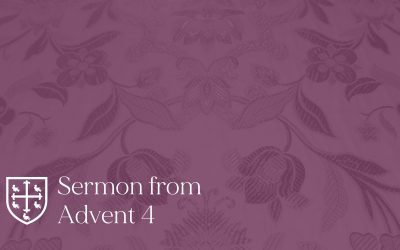Proper 28 Year B 11/17/2024
Daniel 12:1-3; Psalm 16; Hebrews 10:11-25; Mark 13:1-8
Rev. Mark A. Lafler
Each Sunday of the year, when we gather for worship, toward the beginning of the liturgy, we hear a different Collect.
The collect of the day is the second prayer we hear…
Usually after the Gloria.
Our Prayer Book offers a collection of more than 60 prayers for Sundays plus more prayers for special holy days.
Each Sunday we are given a fresh one… a new one…
that we haven’t prayed in the present church year.
These prayers direct the theme or thoughts for the day…
Guide and interpret the readings we hear from the Old and New Testaments.
They set the theological tone for the gathering of worship.
These prayers are called a collect because they “collect” the intentions of all of us gathered.
They are communal…
Prayed with the “collection” of people.
Today our collect is Proper 28.
Blessed Lord,
who caused all holy Scriptures to be written for our learning:
Grant us so to hear them, read, mark, learn,
and inwardly digest them, that we may embrace
and ever hold fast the blessed hope of everlasting life,
which you have given us in our Savior Jesus Christ;
who lives and reigns with you and the Holy Spirit, one God,
for ever and ever.
Amen.
This is one of my favorite prayers.
I do pray it personally…
And we pray it before we read the scriptures at R&R on Tuesdays.
The prayer is an original from the first Book of Common Prayer written in 1549 during the English Reformation.
Thomas Cranmer, the first Protestant Archbishop of Canterbury, designed the prayer as well as the Book of Common Prayer.
Thomas Cranmer for us Anglicans is who Martin Luther is for Lutherans and who John Calvin is for Presbyterians.
In the 16th century, during the Reformation, the Bible was all the rage. Johannes Gutenberg invented the printing press…
And soon after people were able to read the Bible…
Many for the first time.
They discovered that the scriptures were sometimes at odds with the late-Medieval Christianity of the day.
During this reformation of the church many Christians rediscovered the Bible as the ultimate source of authority for the church.
This was the case for the Church of England…
And its reformer, Thomas Cranmer, encouraged the Christians of England to prayerfully hear the words of scripture…
reading, marking, learning, and inwardly digesting the words.
The Rev. Ben DeHart of New York City writes:
This “marking, learning, and inwardly digesting” is not reading the Bible for informational purposes.
It’s not pouring over it for things we can use.
This kind of reading is different.
It involves our whole being.
It changes us from the inside-out.
Author, Pastor, and Theologian, Eugene Peterson writes that this kind of reading gets the Scriptures into our being… into our soul.
He uses an example of his dog to bring out the point.
He writes:
Years ago I owned a dog who had a fondness for large bones. Fortunately for him we lived in the forested foothills of Montana. In his forest rambles he often came across a carcass of a white-tailed deer that had been brought down by the coyotes. Later he would show up on our stone, lakeside patio carrying or dragging his trophy, usually a shank or a rib; he was a small dog and the bone was often nearly as large as he was. Anyone who has owned a dog knows the routine: he would prance and gambol playfully before us with his prize, wagging his tail, proud of his find, courting our approval…. We approved, telling him what a good dog he was. But after awhile, satisfied with our applause, he would drag the bone off twenty yards or so to a more private place, usually the shade of a large moss-covered boulder, and go to work on the bone. The social aspects of the bone were behind him; now the pleasure became solitary. He gnawed the bone, turned it over and around, licked it, considered it. He was obviously enjoying himself and in no hurry. After a leisurely couple of hours, he would bury it and return the next day to take it up again. An average bone lasting about a week. [1]
According to Peterson, this is the kind of reading Christians are to bring to their Bibles…
This is the kind of discipline and energy that Cranmer has us pray for in our collect.
We are asking God for the grace to “eat this book” to “inwardly digest” it to get it into our bones.
We gnaw at this book…
We chew on its words…
As the great 20th century theologian Karl Barth makes clear:
“The strange new world within the Bible” is a truer picture of the world and ourselves than anything we’re being fed on the news.
You see the revelation of God we find in the Holy Scriptures is of greater truth and reality to the world than the commentaries about our time and place.
The political unrest…
The economic woes…
The spin on all things this way and that way.
In the Bible we find the God of compassion, of love, of justice, mercy and grace.
Karl Barth goes on to say
…that we do not read this book and the subsequent writings that are shaped by it in order to find out how to get God into our lives,
get him to participate in our lives.
No.
We open this book and find that page after page it takes us off guard, surprises us, and draws us into its reality,
pulls us into participation with God on his terms. [2]
We need to be transformed from the shadowlands of our world to the reality of the Almighty God as revealed in the scriptures.
Thomas Cranmer knew this…
And that is why 475 years later we are still praying this prayer.
Grant us so to hear them, read, mark, learn, and inwardly digest them…
Whether it’s the unrest of the Reformation in Cranmer’s day…
Or the surreal world of Nazi Germany in Barth’s day…
Or the Political tensions of our nation today…
We need the reality of the Holy Scriptures soaking deep within us.
Transforming us and guiding us!
But probably what I love most about this prayer is that it points us toward the hope we have in Jesus Christ.
The prayer is based on Romans 15.4, which says:
For everything that was written in the past was written to teach us,
so that through the endurance taught in the Scriptures and the encouragement they provide
we might have hope.
Our prayer says:
…all holy Scriptures is written for our learning …
that we may embrace and ever hold fast
the blessed hope of everlasting life,
which you have given us in our Savior Jesus Christ…
The scriptures point to the hope we have in Jesus Christ.
The Old Testament and the New Testament are all about Jesus.
About his grace and mercy and love.
About his ever wooing us to himself.
About his redeeming of creation.
About him reconciling us to the Father.
The scriptures in the Old and New Testaments point to Jesus’ suffering and death and that through his life and death and life again we can be made new.
The scriptures from Genesis to Revelation point to the advent of our Lord.
The first coming at Christmas.
The coming of the Holy Spirit.
And the second coming of Christ Jesus in glory.
The time when Jesus will restore all things.
And we his new creation being fully glorified with him in the new heavens and the new earth.
This is the reality the scriptures point to.
The promises that are made in scripture and fulfilled in Jesus.
Today hear the word of God in our prayers…
Don’t neglect the reading of the Bible…
But in your reading and study of the scriptures…
May you, may we enter into the world of God…
Finding the hope that is given in the good news of the Gospel of Jesus Christ.
The ultimate reality in our broken world.
Let us pray:
Blessed Lord,
who caused all holy Scriptures to be written for our learning:
Grant us so to hear them, read, mark, learn,
and inwardly digest them,
that we may embrace
and ever hold fast the blessed hope of everlasting life,
which you have given us in our Savior Jesus Christ;
who lives and reigns with you and the Holy Spirit, one God,
for ever and ever.
Amen.
[1] Eugene Peterson, Eat This Book, p. 1.
[2] Eugene Peterson, Eat This Book, p. 6.




